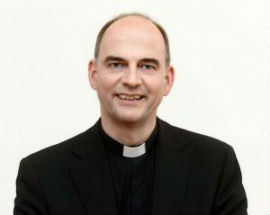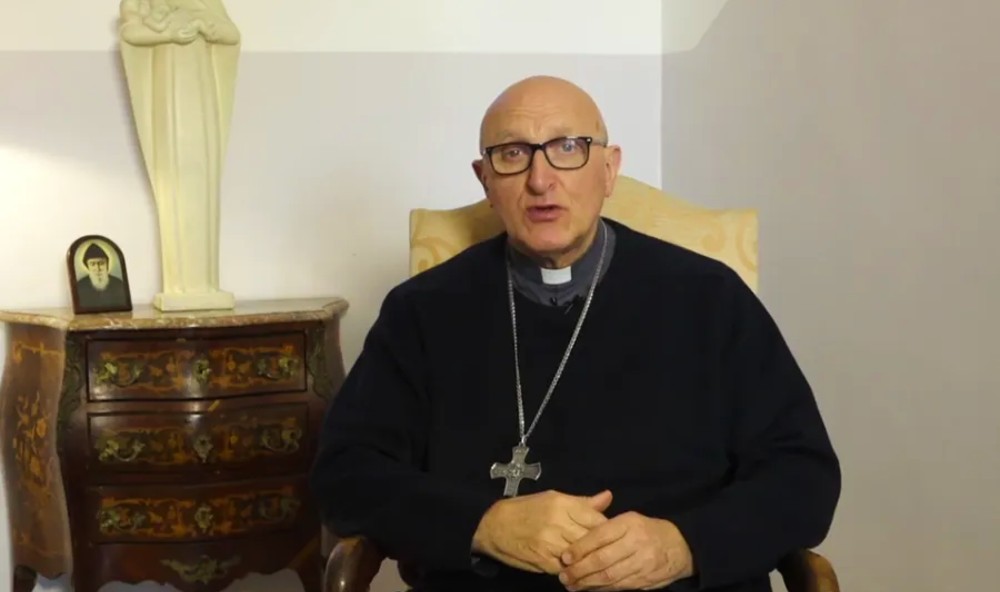 Dear readers, Catholic Online was de-platformed by Shopify for our pro-life beliefs. They shut down our Catholic Online, Catholic Online School, Prayer Candles, and Catholic Online Learning Resources—essential faith tools serving over 1.4 million students and millions of families worldwide. Our founders, now in their 70's, just gave their entire life savings to protect this mission. But fewer than 2% of readers donate. If everyone gave just $5, the cost of a coffee, we could rebuild stronger and keep Catholic education free for all. Stand with us in faith. Thank you. Help Now >
Dear readers, Catholic Online was de-platformed by Shopify for our pro-life beliefs. They shut down our Catholic Online, Catholic Online School, Prayer Candles, and Catholic Online Learning Resources—essential faith tools serving over 1.4 million students and millions of families worldwide. Our founders, now in their 70's, just gave their entire life savings to protect this mission. But fewer than 2% of readers donate. If everyone gave just $5, the cost of a coffee, we could rebuild stronger and keep Catholic education free for all. Stand with us in faith. Thank you. Help Now >
German bishop offers Communion to Protestant spouses
FREE Catholic Classes
The Bishop of Wurzburg issued an open invitation to all Protestant spouses of Catholics to receive the Eucharist on July 5 and 6 while attending Masses celebrated for married couples at the Cathedral of St. Kilian.

Highlights
Catholic Online (https://www.catholic.org)
7/6/2018 (6 years ago)
Published in Living Faith
Keywords: German bishop, issues open invitation, Protestant spouses
Warzburg, Germany, (CNA) - Referring to inter-denominational marriages as "denomination-uniting," a press release published by the diocese says that Wurzburg Bishop Franz Jung "especially invited" couples in which one spouse is Protestant to receive the Eucharist in his sermon on July 5.
Jubilee Masses are usually celebrated for couples who have been married for 25, 50 years or longer.
In May, the Vatican rejected a set of norms proposed by the German bishops' conference on the question of intercommunion. Those norms were subsequently published by the conference as ‽guidance."
Bishop Jung announced July 5 that he would discuss in detail the "recommendations made by the German bishops' conference with his diocesan councils."
"Today however, on the day of jubilees, I would like to express an invitation to receive the Eucharist to all denomination-uniting marriages in which the two partners have been faithful to one another for such a long time," Jung continued.
The 51-year-old Jung was installed as Bishop of the Bavarian diocese of Wurzburg in June 2018. He is the fifth German bishop to announce an implementation of the bishops' "orientation document" thus far.
While that document does not universally allow for Protestant spouses of Catholics to receive the Eucharist, it does allows the practice "under specific circumstances" and "in individual cases."
The Code of Canon Law permits baptized Protestants to receive the sacraments of penance, Eucharist, and anointing in "danger of death," or in another circumstance of "grave necessity," determined by a diocesan bishop or bishops' conference. However, the Church's law requires that those receiving them "manifest Catholic faith in respect to these sacraments and are properly disposed."
The other bishops to announce an "implementation plan" of the German bishops' guidelines are Archbishop Hans-Josef Becker of Paderborn, who introduced the change with immediate effect on Sunday, July 1st, as did Archbishop Stefan HeĂľe of Hamburg a few days later. Archbishop Ludwig Schick of Bamberg has also followed suit, describing certain requirements in addition to the document. Meanwhile Bishops Gerhard Feige of Magdeburg and Franz-Josef Bode of OsnabrĂĽck have declared their intentions but have not implemented the move just yet.
---
'Help Give every Student and Teacher FREE resources for a world-class Moral Catholic Education'
Copyright 2021 - Distributed by Catholic Online
Join the Movement
When you sign up below, you don't just join an email list - you're joining an entire movement for Free world class Catholic education.
-

-
Mysteries of the Rosary
-
St. Faustina Kowalska
-
Litany of the Blessed Virgin Mary
-
Saint of the Day for Wednesday, Oct 4th, 2023
-
Popular Saints
-
St. Francis of Assisi
-
Bible
-
Female / Women Saints
-
7 Morning Prayers you need to get your day started with God
-
Litany of the Blessed Virgin Mary
Meta's New Commitment to Free Speech and Its Potential Impact on Online Discourse
-

Pope Francis Accepts Resignation of Bishop Dominique Rey of Frejus-Toulon
-

Bound by Betrayal: Katie's Struggle with Lust, Lies, and Redemption
-
John: A Story of Addiction, Hopelessness, and the Search for Redemption
-
Science vs. Faith: The Battle for Truth and Hope
Daily Catholic
 Daily Readings for Thursday, January 09, 2025
Daily Readings for Thursday, January 09, 2025 St. Adrian, Abbot: Saint of the Day for Thursday, January 09, 2025
St. Adrian, Abbot: Saint of the Day for Thursday, January 09, 2025 Prayer for a Blessing on the New Year: Prayer of the Day for Tuesday, December 31, 2024
Prayer for a Blessing on the New Year: Prayer of the Day for Tuesday, December 31, 2024- Daily Readings for Wednesday, January 08, 2025
- St. Thorfinn: Saint of the Day for Wednesday, January 08, 2025
- St. Theresa of the Child Jesus: Prayer of the Day for Monday, December 30, 2024
![]()
Copyright 2024 Catholic Online. All materials contained on this site, whether written, audible or visual are the exclusive property of Catholic Online and are protected under U.S. and International copyright laws, © Copyright 2024 Catholic Online. Any unauthorized use, without prior written consent of Catholic Online is strictly forbidden and prohibited.
Catholic Online is a Project of Your Catholic Voice Foundation, a Not-for-Profit Corporation. Your Catholic Voice Foundation has been granted a recognition of tax exemption under Section 501(c)(3) of the Internal Revenue Code. Federal Tax Identification Number: 81-0596847. Your gift is tax-deductible as allowed by law.






 Daily Readings for Thursday, January 09, 2025
Daily Readings for Thursday, January 09, 2025 St. Adrian, Abbot: Saint of the Day for Thursday, January 09, 2025
St. Adrian, Abbot: Saint of the Day for Thursday, January 09, 2025 Prayer for a Blessing on the New Year: Prayer of the Day for Tuesday, December 31, 2024
Prayer for a Blessing on the New Year: Prayer of the Day for Tuesday, December 31, 2024

